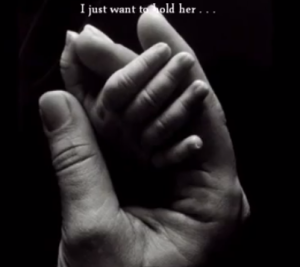Maya Angelou’s pro-life journey
By Dave Andrusko

Maya Angelou and her only son, Guy
When
the sad announcement
was
made that 86-year-old Maya Angelou had died, I knew only the most
generally-known details of her life. For example, that Ms. Angelou was a
prolific author
and
poet, actress and activist, best known either for her book, “I Know Why
the Caged Bird Sings” or perhaps the poem she read at the first
inauguration of President
Bill Clinton, “On the Pulse of Morning.”
I did
not know that she had penned a powerful essay
for the October 8, 2001, issue of Family Circle Magazine titled, “The Decision That Changed My Life: Keeping My Baby.”
I am reproducing it below, and then I will offer what the late Paul Harvey might call the rest of the
story.
When I was 16, a boy in high school evinced interest in me, so I had sex with
him — just once. And after I came out of that room, I thought, Is that
all there is to it? My goodness, I’ll never do that again! Then, when I
found out I was pregnant, I went to the boy and asked him for help, but
he said it wasn’t his baby and he didn’t want any part of it.
I was scared to pieces. Back then, if you had money, there were some girls who
got abortions, but I couldn’t deal with that idea. Oh, no. No. I knew
there was somebody inside me. So I decided to keep the baby.
My older brother, Bailey, my
confidant, told me not to tell my mother or she’d take me out of school.
So I hid it the whole time with big blouses! Finally, three weeks
before I was due, I left a note on my stepfather’s pillow telling him I
was pregnant. He told my mother, and when she came home, she calmly
asked me to run her bath.
I’ll never forget what she said: “Now
tell me this — do you love the boy?” I said no. “Does he love you?” I
said no. “Then there’s no point in ruining three lives. We are going to
have our baby!”
What a knockout she was as a mother
of teens. Very loving. Very accepting. Not one minute of recrimination.
And I never felt any shame.
I’m telling you that the best
decision I ever made was keeping that baby! Yes, absolutely. Guy was a
delight from the start — so good, so bright, and I can’t imagine my life without him.
At 17 I got a job as a cook and later as a nightclub waitress. I found a room with
cooking
privileges, because I was a woman with a baby and needed my own place.
My mother, who had a 14-room house, looked at me as if I was crazy! She
said, “Remember this: You can always come home.” She kept that door
open. And every time life kicked me in the belly, I would go home for a
few weeks.
I struggled, sure. We lived
hand-to-mouth, but it was really heart-to-hand. Guy had love and
laughter and a lot of good reading and poetry as a child. Having my son
brought out the
best in me and enlarged my life. Whatever he missed, he himself is a
great father today. He was once asked what it was like growing up in
Maya Angelou’s shadow, and he said, “I always thought I was in her
light.”
Years later, when I was married, I
wanted to have more children, but I couldn’t conceive. Isn’t it
wonderful that I had a child at 16? Praise God!”
This essay takes on
even great poignancy if we know that over the course of her
long life
Ms. Angelou endured enormous hardships. She accumulated countless
honors—she was nominated for a Tony Award in 1973, won three Grammys for
her albums, received an honorary
National Book Award
for her contributions to the literary community in 2013, and a
Presidential Medal of Freedom –but there was a great deal of pain and
trials and tribulations as well.
The story is a long, long one but important. Angelou’s only grandson,
Colin, was kidnapped in 1981 by her ex-daughter in law after she lost
custody. It would take four years to find Colin and bring him
back home. In the meanwhile, Guy’s physical condition deteriorated from bad to worse.
In 1962 Guy (then 17) had broken his
neck in an
automobile accident. The grandson had been missing for a year, according to Beverly Beyette, writing in 1986 for the
Los Angeles
Times, ”when Guy Johnson’s 20-year-old neck injury began to plague him;
calcium deposits had attached to his spine and Johnson, tall and husky
and athletic, was starting to have serious coordination problems. Soon,
he was at Children’s Hospital in San Francisco, paralyzed from the neck
down.”
Guy, understandably, hit an emotional low.
Angelou remembers him telling her, “Mother, I refuse to live
a talking head. And though you’re my Momma and though I’m your only
child, and I know you love me, I have to ask you something no one should
ever ask a mother. If there’s no chance of recovery, I have to ask you
to pull the plug and let me go.”
Well, Angelou said, smiling as she
recalled the startled faces of the intensive-care nurses, “When I really
understood what he was asking me, I mean, I started screaming–’Total
recovery, that’s what I’ll accept, total! I see you walking, standing,
riding. Total!’ “
Things did not turn around quickly. “His spinal column was too fragile to even blow on and there was a blood clot sitting on it that had to be removed,” Beyette wrote.
Then
As Angelou told her story, her voice
again rose to a shout: “I said, ‘I’m not asking you, I’m telling you.
I’m going to somebody much higher than you, much higher. You did the
best you knew to do and I have no argument with you. But now I’ve gone
somewhere else.’ “
The surgeries were a success. One morning, Angelou said, the nurse awakened her and said, ” ‘Good news.’ We went in and
she pulled the sheets off Guy’s feet and there was one toe (wiggling).”
The joy of that moment, now relived, made Angelou once again slap her
hands together and laugh.
Now, the search for Colin would intensify.
I don’t think anything else needs to be added, or
could be
added. A remarkable woman whose loyalty to her son and grandson—her
determination in the face of seemingly insurmountable odds is
incredible—is a lesson to us all.
Source: NRLC News
 Doctors in the UK will be able to give an opinion on whether a woman can have an abortion by Skype or telephone, according to a clarification from the Department of Health.
Doctors in the UK will be able to give an opinion on whether a woman can have an abortion by Skype or telephone, according to a clarification from the Department of Health.
 Self-starvation has become the latest craze among the “death with
Self-starvation has become the latest craze among the “death with  On June 1, all provinces in China will celebrate “Children’s Day” with lavish children’s
On June 1, all provinces in China will celebrate “Children’s Day” with lavish children’s  Women’s
Rights Without Frontiers has launched a “Save a Girl” campaign to save
women from forced abortion and baby girls from gendercide, and to extend
a helping hand to families who are so poor that their daughters are at
risk. Our network of fieldworkers on the ground in China visits women
who are thinking of aborting or abandoning their baby girls. We offer
them monthly stipends for a year to help them keep their daughters. The
Women’s
Rights Without Frontiers has launched a “Save a Girl” campaign to save
women from forced abortion and baby girls from gendercide, and to extend
a helping hand to families who are so poor that their daughters are at
risk. Our network of fieldworkers on the ground in China visits women
who are thinking of aborting or abandoning their baby girls. We offer
them monthly stipends for a year to help them keep their daughters. The 


 Eastside
Gynecology is located in a neighborhood in New York City where very
important people live in close proximity. That’s why it seems fitting
that the high-end abortion clinic would appeal to nearby potential
clientele by offering VIP Abortion Services.
Eastside
Gynecology is located in a neighborhood in New York City where very
important people live in close proximity. That’s why it seems fitting
that the high-end abortion clinic would appeal to nearby potential
clientele by offering VIP Abortion Services. The
deadly rationing scandal at several Veterans Administration hospitals
has many politicians running for cover, suddenly suggesting we offer
veterans more private-pay options to the single-payer plan of the
Veterans Health Care system.
The
deadly rationing scandal at several Veterans Administration hospitals
has many politicians running for cover, suddenly suggesting we offer
veterans more private-pay options to the single-payer plan of the
Veterans Health Care system.




 A front cover photo for the new TIME
A front cover photo for the new TIME 



 Every so often – if we’re listening – we can catch glimpses of what
Every so often – if we’re listening – we can catch glimpses of what 








